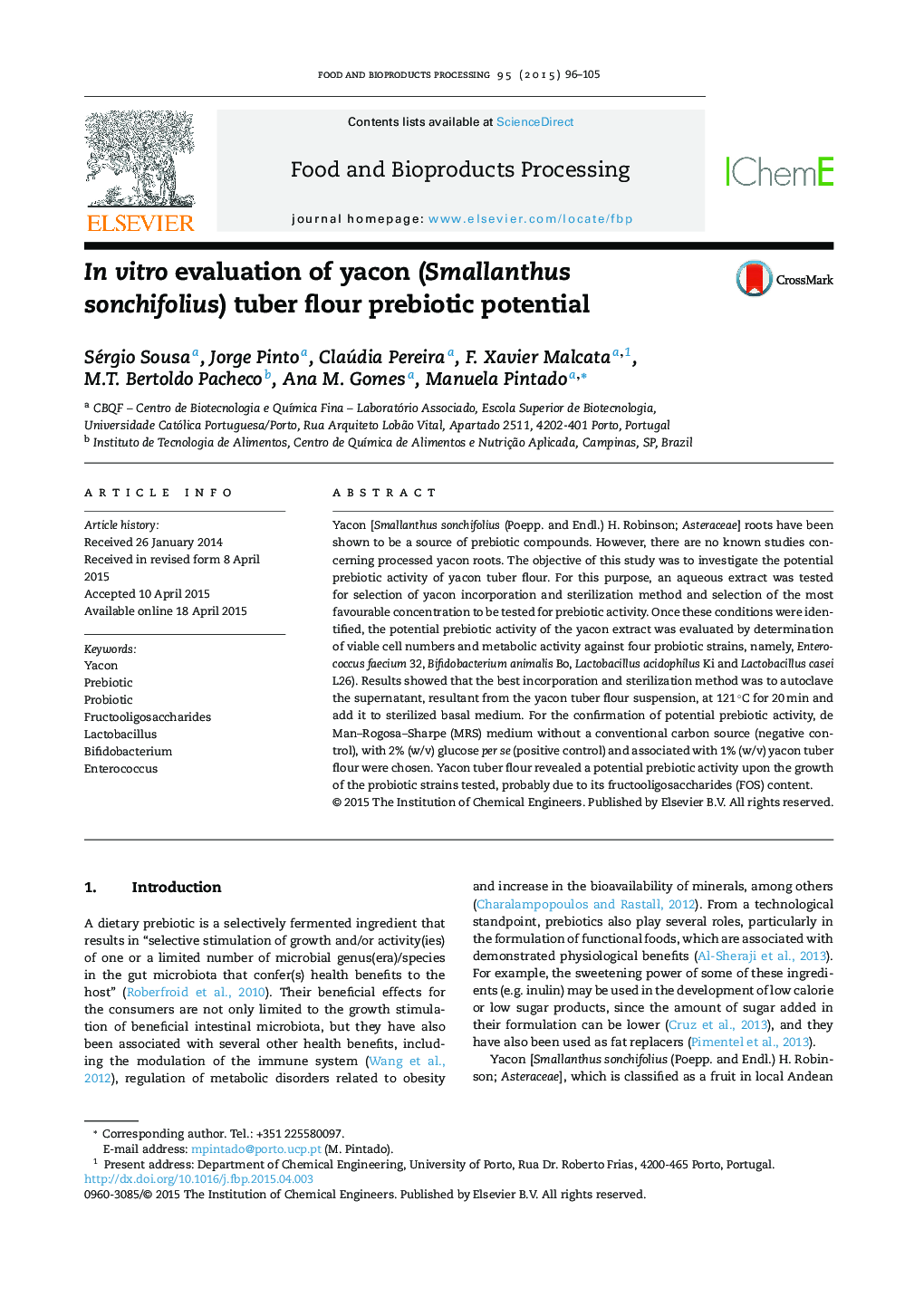| Article ID | Journal | Published Year | Pages | File Type |
|---|---|---|---|---|
| 19007 | Food and Bioproducts Processing | 2015 | 10 Pages |
•Prebiotic potential of yacon tuber flour was tested upon probiotic strains.•Bacterial growth and production of metabolic end products proved prebiotic potential.•Yacon tuber flour promoted better growth performance than glucose for some strains.
Yacon [Smallanthus sonchifolius (Poepp. and Endl.) H. Robinson; Asteraceae] roots have been shown to be a source of prebiotic compounds. However, there are no known studies concerning processed yacon roots. The objective of this study was to investigate the potential prebiotic activity of yacon tuber flour. For this purpose, an aqueous extract was tested for selection of yacon incorporation and sterilization method and selection of the most favourable concentration to be tested for prebiotic activity. Once these conditions were identified, the potential prebiotic activity of the yacon extract was evaluated by determination of viable cell numbers and metabolic activity against four probiotic strains, namely, Enterococcus faecium 32, Bifidobacterium animalis Bo, Lactobacillus acidophilus Ki and Lactobacillus casei L26). Results showed that the best incorporation and sterilization method was to autoclave the supernatant, resultant from the yacon tuber flour suspension, at 121 °C for 20 min and add it to sterilized basal medium. For the confirmation of potential prebiotic activity, de Man–Rogosa–Sharpe (MRS) medium without a conventional carbon source (negative control), with 2% (w/v) glucose per se (positive control) and associated with 1% (w/v) yacon tuber flour were chosen. Yacon tuber flour revealed a potential prebiotic activity upon the growth of the probiotic strains tested, probably due to its fructooligosaccharides (FOS) content.
